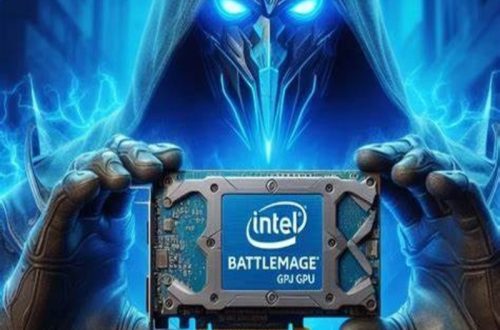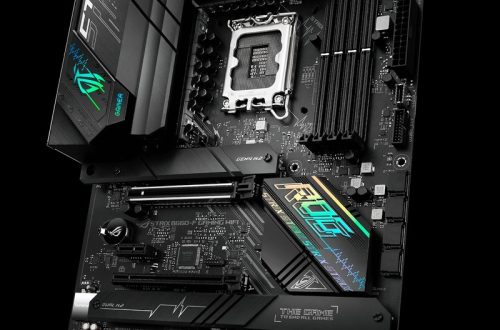Keeping your computer cool is essential for maintaining its performance and longevity. One of the most crucial components in terms of heat generation is the Central Processing Unit (CPU). When the CPU overheats, it can lead to a variety of problems, including crashes, shutdowns, and even permanent damage. This article will explore the common causes of CPU overheating and provide solutions to keep your system running smoothly.
Part 1: The Culprits Behind the Heat
Insufficient Airflow:
Similar to any hard-working machine, the CPU generates a significant amount of heat during its operation. To effectively dissipate this heat, your computer relies on proper airflow within the case. Over time, dust buildup within the case can obstruct the functionality of fans and block air vents, impeding the flow of cool air and effectively trapping hot air around the CPU and other critical components. This accumulation of dust can directly contribute to elevated operating temperatures, potentially leading to overheating issues.
Additionally, inadequate case fans or a poorly designed case can further compound airflow restrictions, hindering the efficient exchange of warm and cool air within the system. To mitigate these issues, regular cleaning and maintenance of the computer’s interior, including removing dust from fans and vents, are critical for maintaining optimal airflow and temperature management, ultimately promoting a healthier and more efficient operating environment for the CPU and the entire system.
Faulty Cooling System:
Even with good airflow, the CPU relies on its dedicated heatsink and fan (or water cooler in some high-performance systems) to directly draw heat away from the processor. A malfunctioning fan, a clogged heatsink, or dried-out thermal paste (the substance between the CPU and heatsink that transfers heat) can significantly hinder the cooling process and lead to overheating.

Part 2: Keeping Your Cool – Solutions for Overheating CPUs
Clean Up Your Act:
One of the most effective strategies to combat overheating in a computer system is through preventive maintenance. Regularly cleaning the interior of your computer using compressed air can significantly reduce the accumulation of dust and debris, particularly in areas such as fans, vents, and the heatsink. It’s important to power down the computer and unplug it from the power source before commencing the cleaning process. Additionally, to prevent potential damage to the delicate internal components, it’s crucial to exercise caution and avoid using liquids when cleaning the interior of the computer. Furthermore, refraining from touching sensitive components with bare hands can help prevent damage due to static discharge. By incorporating a regular cleaning routine into your computer maintenance regimen, you can effectively prevent dust buildup and enhance the overall thermal performance of the system, thereby mitigating the risk of overheating and ensuring the longevity of your computer components.
Software Optimization:
In addition to hardware considerations, software optimization can also significantly impact CPU temperature. Unnecessary background programs and processes can consume system resources, leading to increased heat generation and potentially causing the CPU to operate at higher temperatures. Regularly closing unused programs and processes can help alleviate the CPU workload and reduce the overall heat output. Similarly, updating drivers and software to their latest versions can optimize their performance, improving efficiency and, in turn, minimizing the CPU’s workload and heat generation. Additionally, ensuring that your operating system is kept up-to-date with the latest patches and updates is crucial for maintaining system stability and efficiency. By optimizing software settings and efficiently managing background processes, you can effectively reduce the CPU workload and contribute to lower operating temperatures, ultimately enhancing the overall performance and reliability of your system.
Part 3: Advanced Troubleshooting – When Basic Steps Aren’t Enough
Inspecting the Hardware:
If basic cleaning and software optimization fail to resolve the persistent overheating issue, it’s imperative to conduct a closer examination of the hardware components. Begin by ensuring that all fans within the system are spinning freely and securely connected to the appropriate headers on the motherboard. Pay particular attention to the heatsink, checking for any dust buildup that may impede heat dissipation from the CPU. It’s vital to confirm that the heatsink is properly attached to the CPU for effective thermal transfer. In cases where the thermal paste appears dry or cracked, it may be necessary to consider replacing it to facilitate improved heat conduction.

It’s important to note that handling computer hardware and delicate components requires a certain level of technical expertise and caution. If you feel uncomfortable with the prospect of opening your computer or handling sensitive hardware, it’s advisable to seek assistance from a qualified technician who can perform the necessary checks and maintenance tasks. By entrusting the task to a professional, you can ensure that the hardware inspection and any required maintenance are carried out with the appropriate skill and care, ultimately addressing the overheating issue effectively and without risk of causing further damage to the system.
Upgrading Cooling Solutions:
When faced with persistent overheating issues, particularly in high-performance computer systems, it may be necessary to consider upgrading the existing cooling system. Upgrading the cooling system can effectively mitigate excessive heat build-up and prevent potential thermal throttling that may impact the performance and longevity of the components within the system. There are several strategies and options to enhance the cooling system, depending on the specific requirements and configuration of the system.
One approach to improve overall airflow and dissipate heat more effectively is to replace existing case fans with higher airflow models or to add additional fans to the case. High airflow fans can bolster the overall circulation of air within the case, ensuring that hot air is efficiently expelled and replaced with cooler air. By optimizing the airflow within the case, the cooling efficiency is enhanced, thereby helping to maintain lower operating temperatures for the system’s components.

Part 4: Prevention is Key – Long-Term Strategies for a Cool CPU
Monitor Your System Temperature:
Monitoring the temperature of your CPU is crucial for identifying potential overheating issues and ensuring the overall health and performance of your system. Fortunately, there are several software tools available that allow you to conveniently monitor your CPU temperature in real-time. These tools provide valuable insights into the thermal behavior of your CPU, allowing you to take proactive measures to address any potential issues before they cause significant problems.
One popular software tool for CPU temperature monitoring is coretemp, which provides detailed information about the temperature of each CPU core. Another widely used tool is HWMonitor, which not only displays CPU temperature but also provides data on various other system components such as the motherboard, GPU, and hard drives. Additionally, programs like Open Hardware Monitor and CPU-Z offer comprehensive monitoring capabilities, allowing you to track CPU temperature, clock speeds, and voltage levels.
Optimizing Your Workload:
Being mindful of how you use your computer can significantly impact CPU temperature. Demanding tasks like gaming, video editing, and running resource-intensive software will naturally generate more heat. If you experience overheating during such activities, consider reducing graphical settings, closing unnecessary background applications, or taking breaks to allow the system to cool down.
By understanding the causes of CPU overheating and implementing the solutions outlined above, you can ensure your computer runs cool and efficiently for years to come. If you’re unsure about any troubleshooting steps or feel uncomfortable opening your computer, don’t hesitate to seek professional help from a computer technician. Remember, a cool CPU is a happy CPU, and a happy CPU is a reliable computer.




